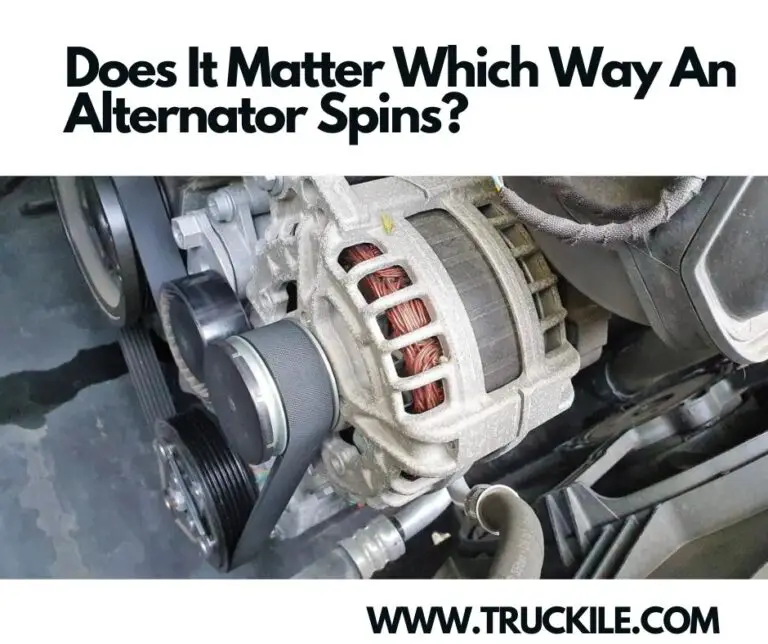Can Misfires Cause White Smoke?
The most common problem reported with a car is the engine misfiring. You can hear it as a tapping noise or a beat, not only that but sometimes misfires can cause your car to hesitate when you press on the gas pedal or even stall out completely.
So the question now is can misfires cause white smoke?
Can Misfires Cause White Smoke?
If the ignition system is working properly, cylinders that misfire should not produce any visible smoke. However, some smoke may be emitted if a cylinder misfires under load (such as during acceleration).
In this case, the engine is being worked harder than normal and this can cause raw fuel to enter the exhaust system. The fuel will then ignite and burn in the catalytic converter or muffler, creating visible smoke.
Can Too Much Oil Cause White Smoke From Exhaust?
Too much oil can cause white smoke from the exhaust pipe. If there is too much oil in the combustion chamber, when you start the engine, the oil will burn and create a cloud of white smoke.
As well as burning excess oil, the car engine may also be burning coolant, which is leaking into the cylinder through a crack in the cylinder wall or head gasket. This is also a very common cause of white exhaust smoke.
A crack in the cylinder wall or head gasket allows coolant to enter the cylinder and burn with the air/fuel mixture. The result is white smoke coming from the exhaust pipe.
It is relatively easy to confirm if this is indeed the problem by using an infrared thermometer to check for hot spots on the cylinder head, block or manifold while the car is cold.
If you find any hot spots then this confirms overheating caused by a possible cracked head or block and therefore internal coolant leaks into your engines combustion chamber.
Why Is My Car Sputtering And Blowing White Smoke?
White smoke usually means that your engine is burning coolant. It could be a cracked cylinder head or a blown head gasket, but it could also be some other problem.
So, once you’ve determined that the smoke is actually coming from your engine and not from your exhaust pipe, here’s what you need to do:
Turn off your car immediately. If you keep driving when there is coolant in the cylinder, you’ll ruin your engine because the coolant won’t burn and will dilute the oil.
Open the hood and look for the leak. You might see a puddle of water or maybe just some steam. If it’s too hot to touch, leave the hood open until everything has cooled off enough to touch it safely.
If it’s been a while since you had your radiator flushed and topped up with antifreeze, do that now. This might solve the problem if your coolant level was low before.
Also, if you don’t see any leaks in the cooling system, then there is probably a crack in one of your cylinders or in the cylinder head itself. In this case, you should have the problem fixed right away by a mechanic so that it doesn’t get any worse.
What Causes A Car To Misfire?
There are three major causes of engine misfires: a faulty ignition system, fuel starvation, or compression problems. Since your car’s ignition system is responsible for firing the spark plugs and igniting the air/fuel mixture in your combustion chambers, a problem there can cause your engine to misfire.
Ignition problems may also be caused by a faulty distributor cap or rotor, worn spark plug wires, or loose spark plugs.
Your vehicle’s fuel system is responsible for delivering the correct amount of gasoline to your engine in order for it to run properly.
If this system is malfunctioning, it can cause your engine to misfire. Problems with fuel delivery can be caused by a clogged fuel filter, plugged injector nozzles, or even an empty gas tank.
One of the final causes of an engine misfire is compression problems within the cylinders. A large portion of these issues usually stem from a valve not closing all the way due to carbon buildup on its face or seat. A bad head gasket can also lead to compression problems as well as coolant entering the combustion chamber through a crack in the cylinder head.
How Much Does It Cost To Fix A Misfire?
This is a repair that will cost you between $200-$400. If the shop has to scan it and come up with a code, they will charge you $40-$100 just for this. The rest of the price comes in with replacing parts like spark plugs, coils, wires, fuel injectors and bad gaskets.
It can take up to 2 hours of labor time to fix a misfire. This is because it takes time to find out what is causing the misfire and then replace the part that is causing it.
It can be hard to diagnose what is causing a misfire on some cars so having a mechanic handle this job can be worth it since they have experience in fixing this problem.
How Do You Tell What Is Causing A Misfire?
Engine misfires can be caused by a list of faults, but there are a few suspects that occur more than others. The primary villains are simple – spark or fuel – usually manifesting in spark plugs, plug wires, the coil(s) or the fuel-delivery system.
The most common symptom of a misfire condition is a rough-running engine. The engine will run rough when some cylinders are not firing properly. The roughness may be felt at idle and especially when accelerating.
A dead cylinder is often detected by listening to the exhaust with a stethoscope or mechanic’s stethoscope. A dead cylinder will have little to no noise coming from it as compared to firing cylinders. This test should be done after the engine has warmed up and in Park with the transmission in Neutral if an automatic transmission is being used.
Can Misfires Cause White Smoke – Conclusion
As a recap of the response we gave to the question, Can Misfires Cause White Smoke?
If the ignition system is working properly, cylinders that misfire should not produce any visible smoke. However, some smoke may be emitted if a cylinder misfires under load (such as during acceleration).
In this case, the engine is being worked harder than normal and this can cause raw fuel to enter the exhaust system. The fuel will then ignite and burn in the catalytic converter or muffler, creating visible smoke.
Thanks for reading.

Joe lives and breathes cars and trucks. After many years working in the Auto industry, he decided that it is only right to share his knowledge with the public. As a qualified expert in trucks and cars, he started working for Truckile.com and is the main editor and publisher.






